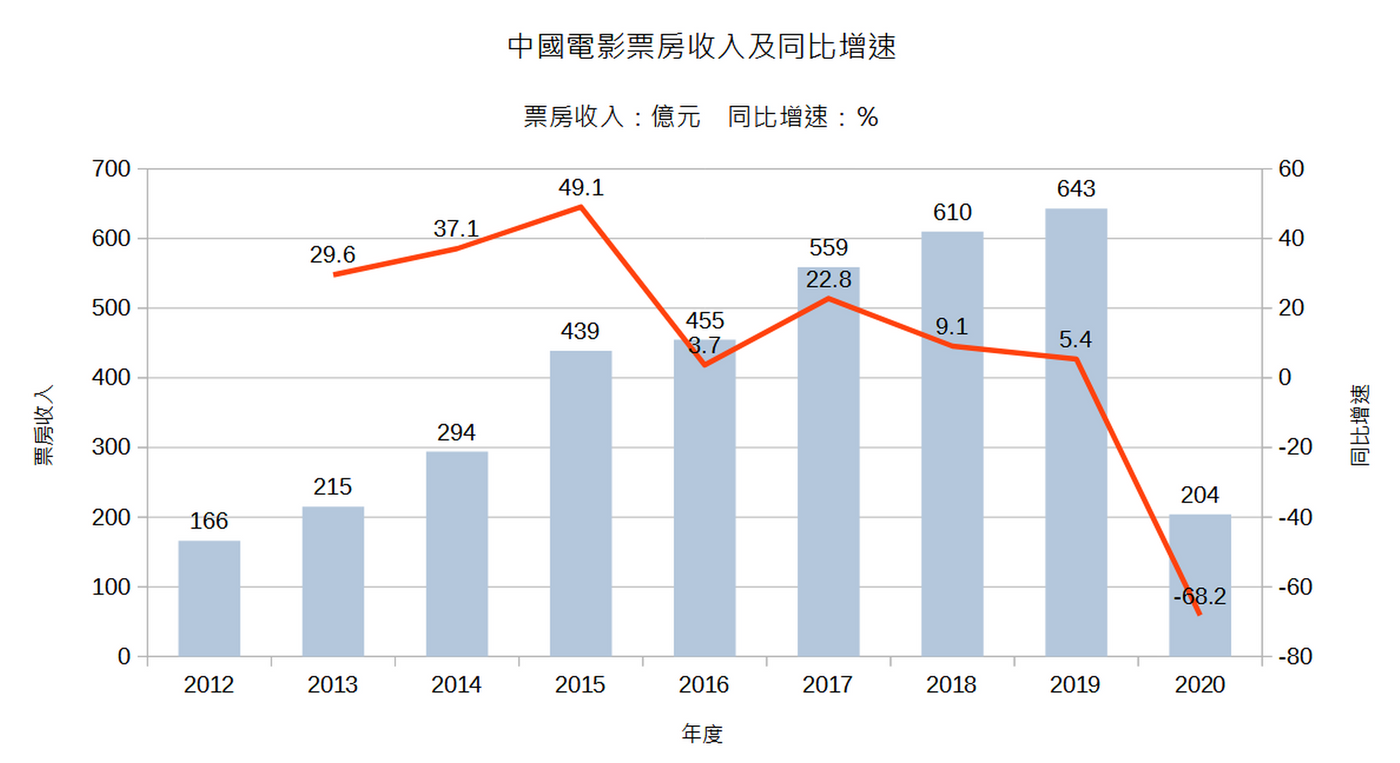Where will the film and television industry in Greater China go under the storm
The original text was published on 2021/9/10 " Multidimensional News "
Recently, artists such as Zheng Shuang, Wu Yifan, Zhao Wei, Xu Xidi (Small S), Zhang Junning, and Angela Chang have been caught in a storm, and the entire mainland film and television industry has been in a state of impetuousness, which makes people think deeply. Human nature has the pursuit of entertainment items. With the change and growth of the economy, the more refined and richer and more diverse entertainment items are sought, and the time that can be devoted to attention will also increase. Or at least become an unavoidable part of everyday life. It is no exaggeration to say that film and television entertainment is a collection of culture, art and media. It innately captures the human senses and vision and makes people fascinated, thus generating demand and giving birth to a huge industrial chain at the economic level.

A macro overview of the film and television industry
In the industry chain of film and television entertainment, many commodities are produced, including stars, internet celebrities, and movies. The production of these commodities requires a lot of capital, and how to recover the invested capital needs to be measured by the "indicators" used to measure the products. "Indicators" are traffic, rice circles, etc. The larger the base of traffic and fan circles, the easier it is to recover costs. Whether it can create and maintain a huge base of traffic and fan circles has become the benchmark used by the film and television entertainment industry to measure the launch of new products. Products corresponding to film and television also include newspapers, magazines, books, online videos, etc.
Among them, the main thing to mention is the film industry. Because ordinary people participate in investment, they will have feelings for certain things that they are familiar with, and it is easy to invest in them, for example, because they like certain idol stars, directors and so on. Taiwanese director Wei Desheng, who shot "Cape No. 7", "Sedek Bale" and other films, intends to raise NT$4 billion (equivalent to approximately RMB 9.33) from the public in Taiwan for the filming of the "Taiwan Trilogy" series. 100 million yuan), it is this mentality of the masses that is exploited.

The film industry refers to the production, distribution and projection of films, as well as the construction of film audio-visual products, film derivatives, cinemas and screening venues, etc., with film production as the core. When movie tickets are earned, the box office becomes one of the important indicators to measure the success of a movie. This indicator can be calculated by the number of viewers, ticket revenue, etc., selling rights to TV channels, advertising, derivative development, and online copyright. etc. are also its source of income. However, the box office is still the main source of income, and the income distribution is based on a separate account system, and the film box office is divided proportionally among the producers, theater chains and theaters.
In China's film and television industry, some are relatively simple producers, such as Alibaba Pictures, Huayi Brothers, Enlight Media, etc.; some span film production and distribution, cinema investment, cinema management, advertising and marketing, and artist brokerage. Bona Films, Wanda Films, Dadi Cinema, etc., while cinemas are more like a pure commercial real estate model.
More monks, less porridge, less volume, and limited emerging technologies are also difficult to break through
With the popularity of optical fiber network to the home, broadcasting movies through the Internet has become a new type. Alibaba Pictures, a subsidiary of Alibaba, and Enlight Media, invested by Tencent, are aiming at this trend. Such Internet giants invest in The film company of 100 million yuan was once popular with capital, but the recent dismal performance of such companies has disappointed investors. In fact, it is not just the online video industry that performs poorly. Although people will have a demand for the entertainment industry after their material desires are satisfied, and such demand should increase, the film and television industry benefits from it to a limited extent. Road video is also difficult to break through this vicious circle.

In 2010, China’s movie box office officially entered the “Ten Billion Era” (if there is no special note below, the unit is in RMB). These numbers may seem quite staggering, but even in 2019, the highest-grossing year for movies ($64.3 billion), they pale in comparison to internet-related industries, such as internet streaming platform iQiyi, whose revenue in 2020 It is 29.7 billion yuan, in other words, the box office revenue of Chinese movies is only a little more than twice that of iQiyi; if compared with other Internet industries, it is even more unbearable. Tencent's Internet in 2020 The game's annual revenue reached 156.1 billion yuan.
It is conceivable that the film industry is not a big pool, but there are many companies, theaters, stars, directors, and many media reports, which attract disproportionate attention, and also lead to excessive pursuit of funds and poor return on investment. Realistic expectations, so it is inevitable to suffer a lot of losses when the valuation returns.
The golden period of growth has passed, and the industry is in obvious decline
Even in the United States, the birthplace of movies, movies have long become a sunset industry. In 2020, despite the impact of the new crown epidemic, China's movie box office revenue is only 20.3 billion yuan (equivalent to about 3.1 billion US dollars), but it still exceeds the North American market. 22. One hundred million US dollars, won the world championship. Although China's achievements are related to epidemic prevention and control, it is enough to show that China and the United States are already rivals at the same level in terms of movie box office.

However, from the point of view of the year-on-year growth of box office revenue, the growth rate of China's movie box office revenue has slowed down quite significantly. Before 2015, it could maintain double-digit year-on-year growth, which was a highlight of the Chinese film industry, but the growth after that was slow. The growth rate in 2016 was only 3.7%, and 22.8% in 2017 was not bad. The growth until 2019 was 9.1% and 5.4% respectively, while the box office level in 2020 was hit by the new crown epidemic and collapsed by nearly 70%.
The movie box office in the North American market has not seen any growth in the past ten years. After 2010, it has basically hovered around 11 billion US dollars. In 2020, it was hit by the epidemic and only reached 2.2 billion US dollars. From this, we can see that the future growth of the film industry has been difficult to break through.
The nature of the industry is difficult to stabilize, and the bargaining power of output is also weak.
The film and television entertainment industry belongs to the content creative industry, and its input-output ratio is not easy to estimate. Unlike the manufacturing industry, which has a certain process flow, the product output is relatively fixed, and it is easy to estimate the input-output ratio. For example, "Hello, Li Huanying" directed by Chinese director Jia Ling only invested 80 million yuan, but the box office revenue was as high as 5 billion yuan. produced.

When Internet companies entered the film and television industry, they originally wanted to use big data and artificial intelligence to make box office predictions, but they suffered from Waterloo, mainly because personal entertainment habits are not easy to predict. In e-commerce, if a person consumes a product, there is a high chance that the consumer will still buy the same (or similar) product, and accurately place it, but the video is more difficult, such as a person After watching a horror movie, it does not mean that the person will only watch horror movies next time, not to mention that the same type of movies do not always have a fixed output.
The above reasons make it difficult to predict the return on investment in the film and television industry. It is difficult for film and television companies to make money from one project after another, and it is difficult to maintain a stable balance. The weak bargaining power of the film and television industry itself further aggravates the situation. For film and television companies, the best way to create traffic and income is to hire famous stars and directors at high prices, but the company does not have high control over its stars and directors, because the brand effect of stars and directors is much higher than that of film and television. Companies, for example, does anyone remember which company Jet Li or Bruce Lee belonged to? How many viewers will go to a movie based on the producer, not the star or director? When traffic is highly dependent on stars and directors, most of the revenue is often taken away by stars and directors.
It is difficult to expand under the umbrella of anti-monopoly supervision
The film and television industries in Greater China, such as China, Hong Kong, and Taiwan, have very limited markets to compete for. They compete fiercely with each other, and investing a lot of resources does not guarantee a better market share. The director took most of the film, which made it difficult for the film and television company to have a stable return.

There are also benchmarks in the film and television industry. For example, Disney in the United States has more than 8,000 IP reserves. It is also one of the few film and television companies that has strong control over its directors and stars. Because of disagreement with the actors, they are replaced or even completely eliminated. There are many works in the series, which is the source of confidence that Disney can still maintain a strong position due to the recent lawsuit with Scarlett Johansson over the issue of "Black Widow" (Black Widow) pay dividends. However, compared with the benchmark, Disney's "exceptional" component may be higher, because film and television is only part of Disney's many businesses, and the company's higher revenue growth in the future will come from amusement parks, consumer products and streaming. The media "Disney+" has well integrated the business of film and television and other derivatives, and its scale is even more difficult to match with its Chinese counterparts. Disney's annual revenue in 2020 is 71.499 billion US dollars, which is still affected by the epidemic. It has not receded and the amusement park business has not yet fully recovered.

The Chinese government has recently imposed strong supervision on online media platforms, games and other projects that can embed cultural values. In addition to trying to prevent projects that are harmful to the body and mind, presumably it will not allow film and television companies to become big enough to “make a big impact”. At this point, under this environment, Chinese film and television companies may have to continue to compete in the Chinese market under the existing scale. However, under the current international situation, it is more difficult to go overseas than before. .
While directors and stars appear to be glamorous, their actual investment value is extremely rare. When they enter the capital market, hype film and television stocks or raise funds, they are actually opening up a new means of generating income for them in addition to their remuneration and advertising income. The average retail investor who chases in may only buy a full-fledged ideal, but movie stars can use this to live a rich and beautiful life.
Like my work? Don't forget to support and clap, let me know that you are with me on the road of creation. Keep this enthusiasm together!

- Author
- More